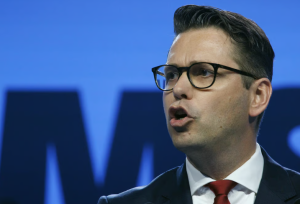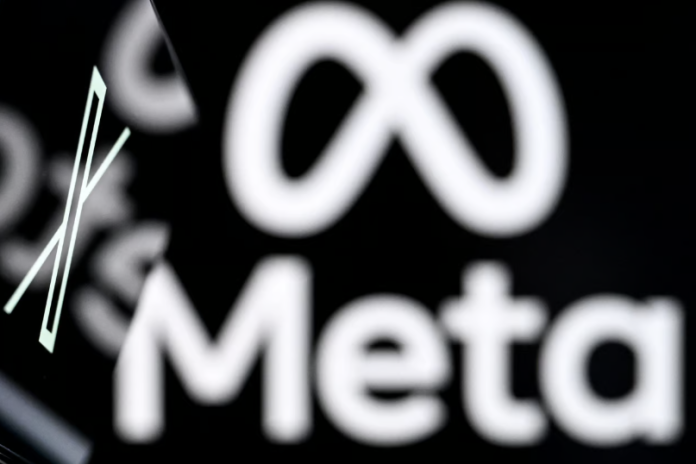Far-right lawmakers feel empowered to step up their attacks against EU social media rules.
BRUSSELS—For the European far right, Elon Musk and Mark Zuckerberg’s crusade against perceived European Union “censorship” is a welcome gift.
European far-right lawmakers have long opposed the EU’s Digital Services Act and other efforts to regulate online content. The tech tycoons’ recent rally against the rules has empowered lawmakers to step up their attacks, too.
Zuckerberg “publicly confirmed what we have been saying about this for a long time,” Belgian far-right lawmaker Tom Vandendriessche, of the European Parliament’s Patriots for Europe group, told POLITICO.
The Meta chief executive announced a major overhaul of the social media giant’s content moderation policy this week, also slamming EU laws as “institutionalizing censorship.” He promised to push back with the help of the Trump administration.
The Patriots, the third-largest group in the EU assembly, want to bank on that sentiment.
Vandendriessche is asking other lawmakers to back a resolution calling for a Parliament committee of inquiry into censorship in the EU. That should investigate whether governments have pressured companies like Meta to censor content and any other possible irregularities linked to DSA enforcement.

The Belgian lawmaker claims he’s already been a victim of unfair treatment over a shadow ban of his Facebook account which reduced its reach for violating terms of use, such as using hateful language. A Belgian judge ordered Meta to pay Vandendriessche damages last year.
Vandendriessche’s efforts may be in vain this time as other political parties swing in the opposite direction.
Four Parliament groups with a majority (the European People’s Party, the Socialists & Democrats, the liberal Renew, and the Greens) have all called for a debate to quiz the European Commission on how it would effectively enforce the DSA in the wake of Musk’s political meddling and Meta’s content pivot.
Yet, the far-right effort may stymie a push to rein in Big Tech platforms that’s failed so far to live up to its promise. Vandendriessche said this agenda “is completely outdated in a changing world” as “the U.S. is going in the opposite direction.”
“Free speech seems to have become a threat for state censors,” posted Christine Anderson, German European lawmaker for the far-right Alternative for Germany (part of the Europe of Sovereign Nations group) on social media platform X. She was responding to a POLITICO article that laid out how Brussels would watch the live-streamed chat of X CEO Elon Musk with AfD leader Alice Weidel.
Weidel herself posted that the “DSA threatens democracy,” also in response to the same article.
Belgian lawmaker Assita Kanko, of the European Conservatives and Reformists (ECR), welcomed Meta’s content moderation overhaul even as colleagues on the other end of the political spectrum blasted it.
Meta’s decision was a “decisive break from top-down censorship,” she said. She advised the Commission to look carefully at the changes and “update existing legislation.”
The Patriots, ECR, and ESN jointly have 187 seats (out of 720) in the European Parliament.
Some non-attached members, such as Cypriot lawmaker and YouTube star Fidias Panayiotou, could join them in criticizing the EU social media rules. Panayiotou has emerged as Elon Musk’s man in the assembly, often taking positions that echo or match Musk’s own views.






















